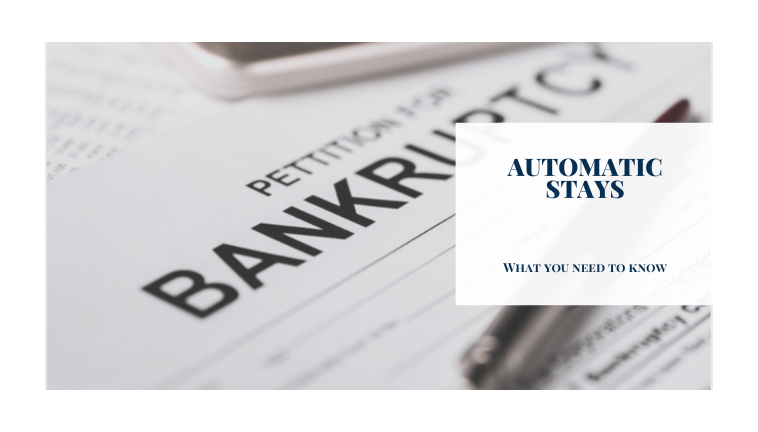What you need to know if you are thinking of filing for bankruptcy.
It is important to understand that the federal bankruptcy law was enacted for the purpose of allowing debtors who are unable to meet their financial obligations to “restart.” When you file for bankruptcy an automatic stay is initiated.
An automatic stay is a provision of bankruptcy law that stops most collection efforts by creditors against a debtor. In New York State, an automatic stay is triggered when a debtor files for bankruptcy. It is meant to provide a debtor with a reprieve from collection efforts to give them the opportunity to reorganize their financial affairs.
The automatic stay immediately stops most collection efforts against the debtor, including foreclosures, wage garnishments, and lawsuits. Creditors are prohibited from taking any action to collect debts or seize property, and any pending legal actions against the debtor are put on hold.
During this time, a debtor has the opportunity to negotiate with creditors, work out a repayment plan, or seek bankruptcy protection. The opportunity will arise during court proceedings with the bankruptcy court, creditors, and trustees.
The automatic stay remains in effect until the bankruptcy case is closed, dismissed, or discharged. However, there are some exceptions to the automatic stay, including certain tax proceedings, criminal proceedings, and actions related to child support and alimony.
What might be expected from creditors during an automatic stay?
Creditors can seek relief from the automatic stay by filing a motion with the court. The court may grant relief if the creditor can demonstrate that the stay is causing them undue hardship, or if the debtor has no equity in the property and the property is not necessary to the debtor’s reorganization.
The automatic stay can be a powerful tool for debtors, providing them with the opportunity to get a fresh start and reorganize their financial affairs. It is important to note that the automatic stay does not eliminate all debts or obligations. Debtors may still be responsible for certain debts, such as tax debts, student loans, and certain court judgments. This will be determined by the type of bankruptcy filed and what relief is granted.
If you are considering bankruptcy, it is important to seek the advice of a qualified bankruptcy attorney.
An attorney can help you understand your options to determine whether bankruptcy is the right choice for you. Likewise, an attorney can assist with the bankruptcy filing process, negotiate with creditors, and provide guidance throughout the bankruptcy case.
Overall, the automatic stay is a provision of bankruptcy law that stops most collection efforts by creditors against a debtor. While bankruptcy can be extremely nuanced, it is not something you should navigate alone. An automatic stay can be a powerful tool for anyone experiencing overwhelming debt, providing them with the opportunity to get a fresh start and reorganize their financial affairs.
However, it is important to seek the advice of a qualified bankruptcy attorney and understand that the automatic stay does not eliminate all debts or obligations.
Have more questions about bankruptcy? Contact us at the firm to see how we can assist.
Attorney Advertising: Prior results do not guarantee a similar outcome.

